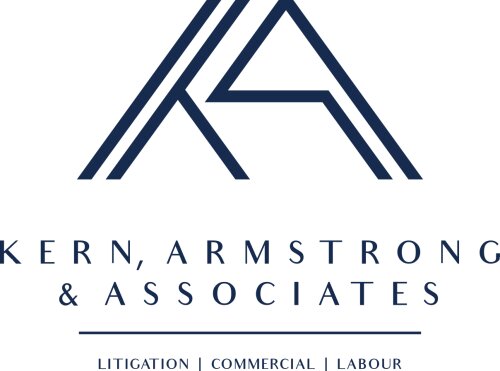Best Private Equity Lawyers in Randburg
Share your needs with us, get contacted by law firms.
Free. Takes 2 min.
List of the best lawyers in Randburg, South Africa
About Private Equity Law in Randburg, South Africa
Private equity law focuses on the legal framework that governs the investment of capital into private companies. This area of law deals with the structuring, negotiation, and execution of deals where investors provide funds to businesses that are not publicly traded on the stock exchange. In Randburg, South Africa, private equity is a significant component of the financial and business landscape, with various local and international funds looking to invest in growth opportunities. Legal practitioners in this field assist both investors and companies in navigating the complex regulations, ensuring compliance, and crafting agreements that protect the interests of all parties involved.
Why You May Need a Lawyer
There are several situations within the private equity sector where legal expertise becomes essential. If you are an investor, a lawyer can help with due diligence to identify potential risks, negotiate and draft investment agreements, and structure the investment for optimal tax and compliance outcomes. Business owners or entrepreneurs seeking private equity funding also need legal assistance to prepare for investor scrutiny, negotiate terms, and comply with disclosure requirements. Other scenarios where a lawyer is crucial include management buyouts, mergers and acquisitions involving private equity, regulatory compliance, conflict resolution between parties, and exit strategies such as selling or listing your company. Having legal guidance ensures that your interests are protected and your transactions remain within the bounds of local and national laws.
Local Laws Overview
Private equity activities in Randburg, South Africa, fall under a combination of national legislation and local regulations. Key aspects include the Companies Act 71 of 2008, which governs company formations, shareholder rights, and directors’ duties. The Financial Sector Regulation Act and rules set by the Financial Sector Conduct Authority (FSCA) also apply, ensuring that private equity funds and participants operate transparently and with accountability. The Competition Act may come into play for larger transactions that could affect market competition, requiring approval from the Competition Commission. In addition, the Broad-Based Black Economic Empowerment (B-BBEE) codes can affect deal-making, particularly in terms of ownership and management transformation. Understanding and adhering to these laws is critical for any successful private equity transaction in Randburg.
Frequently Asked Questions
What is private equity?
Private equity refers to investment funds that directly invest in private companies, or that engage in buyouts of public companies to delist them from stock exchanges.
Is private equity legal in South Africa?
Yes, private equity is legal and is an established investment sector in South Africa, including Randburg, provided all laws and regulations are observed.
What are some common structures used in private equity deals?
Structures commonly used are limited partnerships, private equity funds, and direct share purchases, often tailored to the needs of investors and the target business.
How are private equity funds regulated in South Africa?
They are regulated by the Financial Sector Conduct Authority (FSCA), which enforces financial and operational standards to protect investors.
What legal documents are required for private equity investments?
Typical documents include term sheets, investment agreements, shareholder agreements, and due diligence reports.
How is due diligence conducted in private equity transactions?
Due diligence involves a comprehensive review of a target company’s financials, operations, legal matters, and compliance status, often led by lawyers and accountants.
Are there any restrictions on foreign investment in private equity?
South Africa generally welcomes foreign investment, but certain sectors may be restricted, and exchange control regulations from the South African Reserve Bank may apply.
What are exit strategies in private equity?
Exit strategies include selling the investment to another buyer, initiating an initial public offering (IPO), or conducting a management buyout.
What are the main risks in private equity investments?
Risks include regulatory non-compliance, market volatility, underperforming assets, and insufficient due diligence.
Why is B-BBEE important in private equity deals?
Broad-Based Black Economic Empowerment compliance can affect deal viability, future business opportunities, and regulatory approval, making it a central consideration in South African private equity.
Additional Resources
For more information or assistance, you can refer to organizations such as the Financial Sector Conduct Authority (FSCA), the South African Private Equity and Venture Capital Association (SAVCA), and the Department of Trade, Industry and Competition (DTIC). Local law firms in Randburg with expertise in private equity are also valuable resources for legal guidance tailored to your situation.
Next Steps
If you need legal assistance with any aspect of private equity in Randburg, start by documenting your objectives and the specifics of your potential transaction or concern. Gather relevant financial and legal documents. Research local lawyers or law firms with experience in private equity and arrange initial consultations to discuss your needs. During your meeting, ask about the lawyer’s experience, approach to problem solving, and fee structure. Acting early and with the right legal support can help ensure your private equity transactions are structured securely, legally compliant, and aligned with your interests.
Lawzana helps you find the best lawyers and law firms in Randburg through a curated and pre-screened list of qualified legal professionals. Our platform offers rankings and detailed profiles of attorneys and law firms, allowing you to compare based on practice areas, including Private Equity, experience, and client feedback.
Each profile includes a description of the firm's areas of practice, client reviews, team members and partners, year of establishment, spoken languages, office locations, contact information, social media presence, and any published articles or resources. Most firms on our platform speak English and are experienced in both local and international legal matters.
Get a quote from top-rated law firms in Randburg, South Africa — quickly, securely, and without unnecessary hassle.
Disclaimer:
The information provided on this page is for general informational purposes only and does not constitute legal advice. While we strive to ensure the accuracy and relevance of the content, legal information may change over time, and interpretations of the law can vary. You should always consult with a qualified legal professional for advice specific to your situation.
We disclaim all liability for actions taken or not taken based on the content of this page. If you believe any information is incorrect or outdated, please contact us, and we will review and update it where appropriate.










